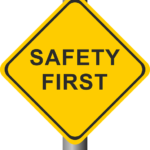Questions of Safety
 Some people may have concerns about folic acid, whether it increases the risk for cancer, autism, or masks vitamin B12 deficiency.
Some people may have concerns about folic acid, whether it increases the risk for cancer, autism, or masks vitamin B12 deficiency.
The Center takes an active role in addressing these concerns using science-based logic. Folic acid is an important micronutrient needed for DNA synthesis. Taken in the range intended, folic acid is safe. Very high doses, also referred to as supra-physiologic (more than what your body needs) are never recommended.
The body needs about 400 micrograms (mcgs) of folic acid per day for normal functioning. The United States has been fortifying staples (wheat and maize products) since 1996 to provide women of reproductive age with adequate folic acid needed for a healthy pregnancy, and prevent spina bifida and anencephaly. There is no evidence showing an increase in the rates of vitamin B12 deficiency, cancer, or other ill effects associated with fortification in the country; the amount of folic acid added in the fortification process is actually only 1/3rd of that recommended each day.
On the other hand, since the U.S. has implemented fortification, there has been a reduction in anemia that results from folate deficiency in the country. We are now learning that folic acid also has a protective effect on the risk of strokes in adults.
We provide a list of useful studies here that have debunked theories that question the safety of folic acid. The Center is continually engaged in reviewing new evidence and confirming the same over the last 20 years that folic acid is safe for everyone.